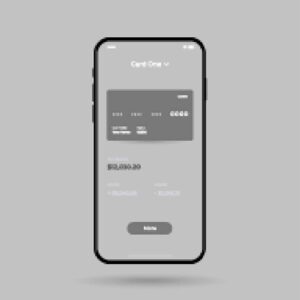PPC
We are Affordable
Website Design and
Development agency
8 Years Of Experience In Website Design & Development
Pay-Per-Click (PPC) Advertising: A Comprehensive Guide
Pay-Per-Click (PPC) advertising is a digital marketing model that allows businesses to drive traffic to their websites by paying a fee each time one of their ads is clicked. This model is widely used across various platforms, including search engines, social media, and display networks. This guide will explore the fundamentals of PPC, its benefits, strategies for success, and best practices for effective implementation.
What is PPC Advertising?
PPC is an online advertising model where advertisers pay a fee each time their ad is clicked by a user. It is primarily associated with search engine advertising, where businesses bid on keywords relevant to their products or services. When users search for those keywords, the ads appear at the top or bottom of the search results page. The most common platform for PPC advertising is Google Ads, but other platforms like Bing Ads, Facebook Ads, and LinkedIn Ads also offer PPC options.


Benefits of PPC Advertising
Immediate Results: Unlike organic search engine optimization (SEO), which can take time to yield results, PPC campaigns can generate traffic almost instantly once they are live.
Targeted Advertising: PPC allows advertisers to target specific demographics, locations, and interests, ensuring that ads reach the most relevant audience.
Budget Control: Advertisers can set daily or monthly budgets, allowing for precise control over spending. This flexibility makes PPC accessible for businesses of all sizes.
Measurable ROI: PPC campaigns provide detailed analytics, enabling businesses to track performance, measure return on investment (ROI), and make data-driven decisions.
Brand Visibility: Even if users do not click on the ads, having them appear in search results increases brand visibility and awareness.
Key Components of a Successful PPC Campaign
a. Keyword Research
Keyword research is the foundation of any successful PPC campaign. It involves identifying the terms and phrases that potential customers use when searching for products or services. Effective keyword research includes:
Identifying Relevant Keywords: Use tools like Google Keyword Planner, SEMrush, or Ahrefs to find keywords with good search volume and relevance to your business.
Analyzing Competition: Assess the competition for each keyword to determine which ones are worth targeting based on your budget and goals.
Long-Tail Keywords: Focus on long-tail keywords (phrases with three or more words) that are less competitive and often indicate higher purchase intent.
b. Creating Compelling Ad Copy
Ad copy plays a crucial role in attracting clicks. Here are some tips for writing effective PPC ads:
Clear and Concise Messaging: Communicate your value proposition clearly and succinctly. Highlight what makes your product or service unique.
Call to Action (CTA): Include a strong CTA that encourages users to take action, such as “Shop Now,” “Learn More,” or “Get a Free Quote.”
Ad Extensions: Utilize ad extensions to provide additional information, such as location, phone number, or links to specific pages on your website.

c. Landing Page Optimization
The landing page is where users arrive after clicking on your ad. To maximize conversions, ensure that your landing page is:
Relevant: The content should align with the ad copy and fulfill the promise made in the ad.
User -Friendly: Design a clean, intuitive layout that makes it easy for users to navigate and find the information they need.
Optimized for Conversions: Include clear CTAs, forms, or purchase options to guide users toward taking the desired action.
d. Budgeting and Bidding Strategies
Setting a budget and choosing a bidding strategy are critical components of PPC management. Consider the following:
Daily and Monthly Budgets: Determine how much you are willing to spend daily and monthly to control costs.
Bidding Strategies: Choose a bidding strategy that aligns with your goals, such as manual bidding, automated bidding, or cost-per-acquisition (CPA) bidding.

Monitoring and Analyzing Performance
To ensure the success of your PPC campaigns, regularly monitor and analyze performance metrics. Key metrics to track include:
Click-Through Rate (CTR): The percentage of users who click on your ad after seeing it. A higher CTR indicates effective ad copy and targeting.
Conversion Rate: The percentage of users who complete the desired action after clicking on your ad. This metric helps assess the effectiveness of your landing page.
Cost Per Click (CPC): The amount you pay for each click on your ad. Monitoring CPC helps manage your budget effectively.
Return on Ad Spend (ROAS): The revenue generated for every dollar spent on advertising. This metric helps evaluate the overall effectiveness of your PPC campaigns.
Best Practices for PPC Advertising
A/B Testing: Continuously test different ad copies, keywords, and landing pages to identify what works







